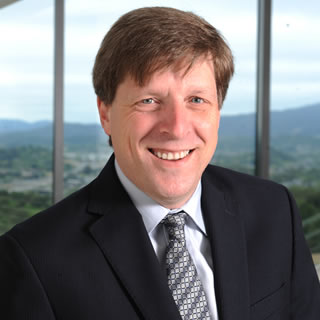Dr. Brian K. Kennedy
Brian K. Kennedy, Ph.D. is the Director at the Centre for Healthy Aging at the National University Health System and Professor in the Department of Biochemistry and Physiology, Yong Loo Lin School of Medicine, at the National University of Singapore since 2017.
From 2010 to 2016, he was the President and CEO of the Buck Institute for Research on Aging. Currently he remains as Professor at the Institute since 2010. Brian is also Adjunct Professor at the Leonard Davis School of Gerontology, USC Davis School of Gerontology, since 2013 and Affiliate Professor at the University of Washington since 2010.
Currently, Brian studies the pathways that modulate longevity in life forms ranging from yeast to mice. A major focus of his current research is to study the target of the rapamycin (TOR) pathway. TOR generated excitement in the age research field when it was shown recently that the drug rapamycin can extend mouse lifespan. One of the goals of his research — The mechanistic Target of Rapamycin: The grand conducTOR of metabolism and aging — is to determine whether pathways like TOR can be regulated to treat the diseases of aging. Specifically, Brian’s lab focuses on cardiovascular disease and metabolic syndromes like type II diabetes.
Brian also studies the genetic mutations underlying diseases such as dilated cardiomyopathy, muscular dystrophy, and Hutchinson-Gilford Progeria Syndrome, which resembles premature aging. The mutations being studied affect a class of molecules called A-type nuclear lamins, and the lab is exploring their roles in health and disease.
The Centre for Healthy Aging, NUS lab run by Brian’s lab uses multiple animals models combined with human studies to understand the mechanisms driving biological aging and to develop interventions designed to extend healthspan and lifespan. The Kennedy lab focuses on elucidating the effects of diets and metabolism on fundamental aging mechanism developing cutting edge anti-aging interventions. They believe that by developing interventions that slow aging, it will be possible to extend human healthspan, delaying the onset of multiple chronic diseases, and maintaining healthy function later in life.
The Centre for Healthy Aging, NUHS is a multi-disciplinary hub that integrates research and clinical care, providing a strategy to promote healthy living throughout the aging process, from effective disease prevention in the healthy to novel and compassionate end-of-life care.
The National University Health System (NUHS) is one of three public healthcare clusters in Singapore, and an integrated Academic Health System and Regional Health System.
A major focus of the Centre is to delay aging, prolonging disease-free life, as well as maintaining high functionality and resilience. The programme will improve the quality of life for people as they age and reduce healthcare costs in Singapore with its aging population.
Brian is internationally recognized for his research in the basic biology of aging and as a visionary committed to translating research discoveries into new ways of delaying, detecting, and preventing human aging and associated diseases.
He has served on the NIH Cellular Mechanisms of Aging and Development study section since 2006, acting as Committee Chair since 2010. He has also served on the grant review committee for the American Federation for Aging Research Grants since 2006. He has acted as an Associate Editor for the Journal of Gerontology: Biological Science since 2006 and Cell Cycle since 2010. Currently, he is Coeditor-in-Chief of Aging Cell and as well serves as Scientific Director of Affirmativ Health.
Brian has served as Consultant for Biotech and Pharmaceutical companies, and was Co-Founder of the Nuvita Animal Health Corporation. He was also Chairman of Mount Tam Biotechnologies.
Brian’s work in the biology of aging began when he was a doctoral student at MIT. Under the guidance of MIT Professor Leonard Guarente, he contributed to the first studies to show that a class of proteins called sirtuins influence aging.
He earned his Ph.D. in Biology at the Massachusetts Institute of Technology (MIT) in 1996, where he took part in groundbreaking studies on aging. He completed his postdoctoral training in 2001 at the Massachusetts General Hospital Cancer Center in Charlestown, Massachusetts. Brian earned his Bachelor’s Degree of Arts in Mathematics and BMBCB (Biochemistry, Molecular Biology, and Cellular Biology) from Northwestern University in 1989.
Brian was an Assistant Professor since 2001 and Associate Professor since 2007 in the biochemistry department at the University of Washington in Seattle. In 2010, he became Affiliate Professor and currently still holds the position.
Between 2009 and 2014, Brian was also a Visiting Professor in Aging Research at Guangdong Medical College in China.
Read the news report about the Buck Institute at LeafScience.
Brian has published a number of papers on his research, including:
- A novel rapamycin analog is highly selective for mTORC1 in vivo, 2019
- Rb analog Whi5 regulates G1 to S transition and cell size but not replicative lifespan in budding yeast, 2019
- Translation attenuation by minocycline enhances longevity and proteostasis in old post-stress-responsive organisms, 2018
- Prelamin A causes aberrant myonuclear arrangement and results in muscle fiber weakness, 2018
- The replicative lifespan-extending deletion of SGF73 results in altered ribosomal gene expression in yeast, 2017
Read the news about Brian’s appointment in the NUS Yong Loo Lin School of Medicine’s Departments of Biochemistry and Physiology to lead ongoing efforts to understand the human aging process and how to extend the period of healthy life or healthspan.
Brian was invited speaker at Metabesity 2019. Watch his talk Interventions at the crossroad of aging and metabolism
Watch his TEDxOnBoard talk, A Medical Revolution: Targeting aging directly. Watch Brian’s talk at Undoing Aging 2018. Watch the interview with Brian and Dr. Linda Partridge.
Read the news Buck CEO Brian Kennedy Meets with Biotech and Pharma Companies in Tokyo. Read the article ‘Healthspan’ hasn’t grown as much as lifespan, says expert, as published for The Straits Times. Read the interview with Brian for Fight Aging!
Visit his LinkedIn profile, his ResearchGate page, and his Professional Homepage. Follow him on Facebook and Wikipedia.
